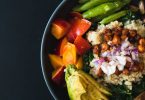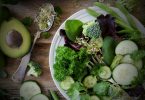As the temperature starts to soar in the summer months, it becomes increasingly important to pay attention to what we eat. With the sun beating down and the air feeling hot and heavy, it can be tempting to reach for a cold beverage and some comfort food. However, it’s important to remember that our bodies need nourishment and hydration to function properly, especially during the warmer months. In this article, we’ll explore some of the best foods to eat and avoid during summer.
First and foremost, it’s crucial to stay hydrated during the summer months. Drinking plenty of water, coconut water, fresh fruit juices, or herbal teas is key to staying hydrated and keeping your body functioning optimally. Watermelon, cucumber, and mint can be infused in water for an added flavour boost. Avoid sugary and carbonated drinks which can lead to dehydration and harm your digestive system.
When it comes to food, focus on eating light, fresh, and easily digestible meals. During summer, our bodies are more prone to dehydration, and heavy meals can be difficult to digest, leading to discomfort, bloating, and sluggishness. Opt for salads, soups, and light sandwiches or wraps made with fresh, seasonal produce such as cucumbers, tomatoes, bell peppers, leafy greens, berries, melons, and stone fruits.
Grilled or baked lean meats like fish or chicken can also be a healthy and delicious addition to your summer diet. When grilling, try using herbs and spices instead of heavy sauces or marinades to keep the flavour light and fresh.
Avoid heavy, fried foods and spicy dishes that can increase body heat and make you feel uncomfortable in the heat. This includes heavy meat dishes, deep-fried snacks, and spicy curries. It’s also best to limit your intake of processed foods, sugary treats, and alcohol, as they can dehydrate the body and increase inflammation.
In addition to making healthy food choices, it’s important to stay active and get enough rest during the summer months. Incorporating activities like swimming, hiking, or yoga into your routine can help keep your body moving and active while also reducing stress levels. And make sure to prioritize getting enough sleep, as lack of sleep can also contribute to dehydration and low energy levels.
In conclusion, a healthy summer diet should focus on fresh, hydrating foods that are light and easy to digest. Avoid heavy, fried, and spicy foods, and opt for lean proteins, fresh produce, and plenty of water and other hydrating fluids. By making these simple adjustments to your diet and lifestyle, you can stay healthy and energized throughout the summer months.







